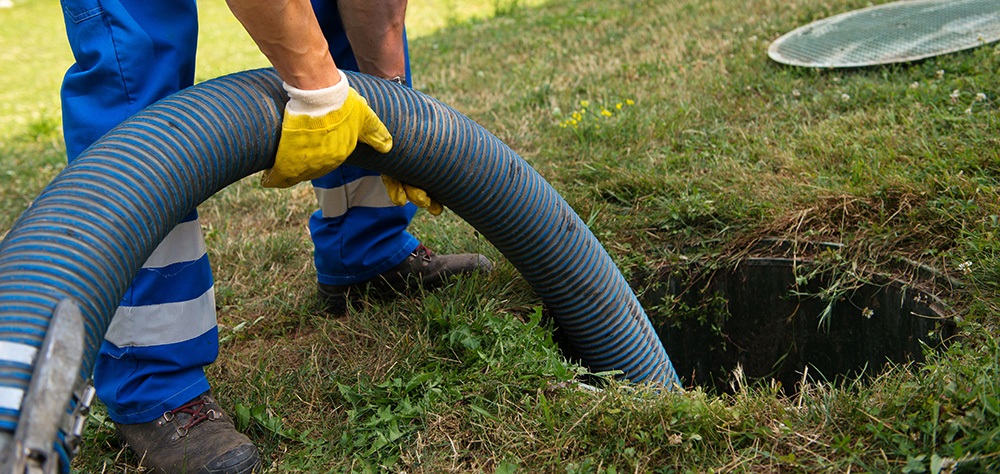
How Often Should You Get Your Septic Tank Pumped?
February 18, 2025
Maintaining a healthy septic system is vital for both homeowners and businesses.
Regular septic tank pumping ensures the system functions efficiently, avoids costly repairs, and protects the environment.
But how often should you pump your septic tank?
Let us guide you through everything you need to know about septic maintenance, from general guidelines to emergency scenarios.
General Guidelines for Septic Tank Pumping
On average, septic tanks should be pumped every 3-5 years. However, the exact frequency depends on several factors:
-
Household Size: Larger households generate more wastewater, filling the tank faster.
-
Tank Size: Smaller tanks require more frequent pumping.
-
Water Usage: High water usage from appliances, showers, and dishwashers can impact how quickly the tank fills.
Pumping Frequency Based on Tank Type
Different septic tank materials and designs influence maintenance schedules:
Concrete Septic Tanks
Concrete tanks are durable and long-lasting. They typically require pumping every 3-5 years, depending on usage.
Plastic Septic Tanks
Plastic tanks are lightweight but more prone to damage. Regular inspection and pumping every 2-3 years are recommended.
Fiberglass Septic Tanks
Fiberglass tanks resist rust and cracking, offering reliability. Pumping is usually needed every 3-4 years.
Aerobic Septic Systems
Aerobic systems include additional components like pumps and aerators. These systems often need more frequent maintenance, sometimes annually.
Signs Your Septic Tank Needs to Be Pumped
Watch for these warning signs indicating your tank may need immediate attention:
-
Slow Drains: Water drains sluggishly in sinks, tubs, and toilets.
-
Unpleasant Odors: Foul smells near the tank or drain field.
-
Standing Water: Pools of water or overly lush grass near the drain field.
-
Gurgling Sounds: Bubbling or gurgling noises in your plumbing system.
Address these signs promptly to avoid a septic emergency.
What Does a Septic Emergency Look Like?
Septic emergencies can cause significant disruption and damage. Common scenarios include:
-
Overflowing Toilets: Wastewater backing up into your home.
-
Strong Sewage Smell: Persistent odors inside or outside.
-
Soggy Yard: Wet, mushy ground around the septic system.
If you encounter these issues, call us immediately. Our 24-hour emergency services ensure prompt assistance.
Cost of Septic Tank Pumping
The cost of septic tank pumping typically ranges between $250 and $600. Several factors can affect pricing:
-
Tank Size: Larger tanks cost more to pump.
-
Location: Accessibility and travel distance may add to the cost.
-
Service Type: Emergency pumping incurs higher fees.
Budgeting for regular pumping is more affordable than emergency repairs or replacements.
Benefits of Regular Septic Tank Pumping
Consistent maintenance offers numerous advantages:
-
Prevents Costly Repairs: Avoid major system failures with proactive care.
-
Protects the Environment: Prevents groundwater contamination and pollution.
-
Ensures Health and Safety: Reduces risks of sewage backups and property damage.
Why Choose Us?
We are a trusted name in septic services across New Hanover, Pender, and surrounding counties. As a locally owned and family-operated business, we provide:
-
Affordable Pricing: Transparent rates with no hidden fees.
-
Advanced Technology: Modern tools for efficient and clean service.
-
Emergency Availability: 24-hour assistance for urgent issues.
Our dedication to quality and customer satisfaction makes us the go-to choice for septic system care.
Conclusion
Regular septic tank pumping is essential for a well-functioning system and a healthy home. By understanding your tank type, monitoring for signs of trouble, and scheduling timely maintenance, you can avoid emergencies and costly repairs.
Contact us today for reliable, professional septic services tailored to your needs.
